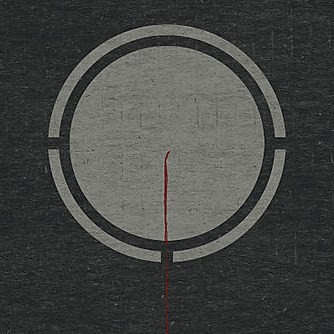Reminder: This post is from the Community Actual Discussion). You’re encouraged to use voting for elevating constructive, or lowering unproductive, posts and comments here. When disagreeing, replies detailing your views are appreciated. For other rules, please see this pinned thread. Thanks!
I dislike this article. It’s a little old now, but there are several things blisteringly wrong with this idea at its heart.
Purely for example, if you read a book on dragonflies and take offence because you see racial similarities between whatever race a person is and dragonflies, that’s an issue with you, not the source. You are relying on your opinion on what the source says. Since opinion varies per person, you should not dictate policy based on opinion. It’s an insurmountable hill to cater to whatever opinions are since opinion will always change - it’s an unsound basis for any form of logic.
Let’s do a thought experiment:
If a trailer-dwelling white person in the USA reads about the Vistani, and takes offence because they also live in a trailer, sees that as a negative, and assumes the Vistani are a potshot at him, is he right to be offended and call for a ban?
If a nimble Canadian POC (which is also a terrible term as it literally applies to everyone on the planet) reads about Elves and assumes they’re talking about him because he also happens to know how to use a bow and is skinny with a lithe frame, is he correct in calling for a ban? What if he sees being nimble as a negative for some reason (because positive / negative characteristics are opinions and what people see as negative is not objective)? What if he sees it as being racist by saying the source is calling ALL Elves nimble and therefore good at sports? “But they stereotypically have a different skin colour!” I hear you saying. So do Orcs. That argument applies here and if you can’t square that circle, then the logic falls apart utterly.
Personal identification with aspects of characters in a source material are not cause for alteration. You are an individual; you are not a group. Grouping people into camps based on visible traits or histories is a disgusting habit.
Treat people as individuals and racism dies. Treat people as groups and call out the differences constantly and you’ll have people fencing themselves in while calling themselves inclusive.



The issue for a lot of this isn’t that people just happen to see something that wasn’t there, but that the source material was specifically written to be analogous to some stereotypes.
I was working in a game store when Curse of Strahd came out, and there was a guy who was probably in his 60 who was almost to the point of yelling because he wanted the real one, with “drunk dirty gypsies”. It was wild to me that so many nerds were more openly vile than the guys at my previous construction job.
But if an indigenous person sees a race with the collective harmful stereotypes of “red-skinned plains/forest people, who run around scalping people, being drunk, can’t be trusted, and just refuse the help of the good humans who just want to help them,” they can and should find that offensive. The issue with the D&D races, is they were often written by a white guy in the 1970’s, who was trying to grab at tropes that the people around him would know, in order to have a sense of familiarity baked into the game world.
The issue isn’t something like “all elves are nimble because of their genetics”, it’s that a lot of the races have morality built in from birth that cannot be changed. So not only are some of the races drawn to look like stereotypes of certain races and given stereotypical behaviours/proficiencies as that same race as a group, but they are written to all be evil, existing only to be killed.
I agree that the source material was to have some negative actions carried out by NPC races, but I disagree that they were intended to be analogous to real world racial stereotypes. I think they were intended to be well-trod archetypes assigned to random fantasy groups, not real-world racial stand-ins (with the potential exception of the Vistani, but I would argue that the Romani aren’t a “race” and are more defined by their self-grouping than anything else - it’s not like you could point one out in a diverse crowd of people).
If you’re making enemies for a game you’re creating, you’re going to want to give them “bad” traits. Greedy, destructive, thieving, conniving, power-mad… Doesn’t matter as long as they are things considered near-universally bad.
At some point in history, nearly every “bad” trait you could name has been associated with a race by someone being racist. I think we agree on this point.
This relates to D&D because there was (for the most part) no real-world racial intent originally, only intent that people read into because they had internalized racist thoughts about groups they belonged to and then assumed the author did as well.
That’s why my examples above are what they are. If someone perceives negative racial intent where there is none, it is irrelevant. As a DM, since day one, you are also given the power to make any race or character into whatever you wish. Want to make bright white drow that are super good and live inside the sun? Go hard. It’s not baked in to the game.
Originally, the only thing that these tropes for these fantasy races apply to is ONE group in ONE planet in ONE plane. Don’t use that plane. Problem solved. They were there to give you a place to start with some interesting lore and that’s all. You were never limited to this.